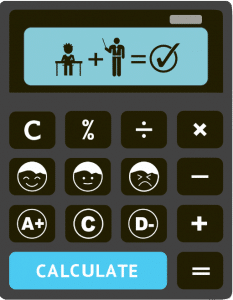Find tutor 🔍
A local tutor can help with VCE Mathematical Methods
Feeling a bit overwhelmed by VCE Mathematical Methods? You’re not alone — tackling tricky equations, mastering calculus, and making sense of abstract concepts can push anyone to their limits. But here’s the good news: with the right practice, it all starts to click.
That’s where past papers, marking guides, and targeted resources come in. They’re not just “extra practice” — they show you the exact style of questions you’ll face and how to hit those top marks. Dive in now, and give your future self a reason to thank you. You’ve got this!
VCE Mathematical Methods Past Papers and Resources
5 Brutally Honest Tips to Conquer the VCE Mathematical Methods Exam
Let’s cut to the chase: succeeding in VCE Mathematical Methods isn’t about luck or magic—it’s about strategy, grit, and putting in the work. You’ve got the VCE Mathematical Methods past papers in front of you, so now it’s time to get smart about how you use them. Here are five tips that will separate you from the crowd. Ready to dominate? Let’s go. 🎯
1. Own Your Weak Spots—They’re Not Going Anywhere.
Here’s the deal: that topic you dread? Whether it’s tricky calculus or probability, it’s not going to disappear from the exam just because you don’t like it. Pull out those past papers and target the questions you keep bombing. Use them to uncover your blind spots, then hammer away at those areas until they feel second nature. Ignore your weaknesses, and they’ll come back to haunt you.
2. Treat Calculus Like the Boss Battle It Is.
If Mathematical Methods were a video game, calculus would be the final boss—and let’s be real, it’s the one that trips up most students. Top scorers don’t just practice calculus questions from past papers; they dissect them. Understand every step of differentiation, integration, and interpreting results. If you can’t explain the “why” behind a solution, you’re not ready to move on. Dive in, embrace the pain, and make calculus your secret weapon.
3. Stop Running from Worded Problems.
Don’t kid yourself—worded problems are where the exam gets sneaky. They’re not just about crunching numbers; they test whether you truly understand the concepts. Take the worded questions from VCE Mathematical Methods past papers, and practice translating them into equations. Highlight the key information, break it into manageable parts, and always double-check your interpretation. Nail these, and you’re leagues ahead of the competition.
4. Recognize the Patterns (No, Not the Obvious Ones).
Here’s a pro tip: 🔍 past papers aren’t just for solving questions—they’re for spotting trends. Certain question types, like those with trigonometric identities or log rules, show up year after year. Study how they’re phrased, where the traps are, and what markers are looking for. When you know the patterns, you won’t waste time second-guessing yourself in the exam.
5. Practice Without the Calculator—Yes, Really.
Let’s be honest: many students lean way too hard on their calculators. Sure, you’ll have it in the exam, but relying on it for every little thing slows you down and can cost you marks if you miss a setup error. Take a chunk of practice exams and force yourself to do the calculations by hand. It’ll sharpen your algebra skills and make you faster when it matters most.
Ready to crush it? Past papers aren’t just a resource; they’re your ultimate training ground. Use them to turn weaknesses into strengths, master the toughest topics, and spot the patterns that’ll make the real exam feel like a breeze. Remember: the students who succeed don’t just work harder—they work smarter. 💪
What they say about our tutoring
Mitchell is happy with the new tutor, thank you. Sean is a good communicator which makes Mitchell feel more relaxed thanks again.
We are very happy with Sheetal. Timothy is making great progress and we are happy to continue. We will have Tim do his Navy test in a few weeks and if we need to do a bridging course we will ask Sheetal to tutor him with that as well.

Our philosophy to teaching is based upon a firm belief that every child can succeed at maths or any other subject, given the proper encouragement, motivation and tools. We believe that a tutor’s …






